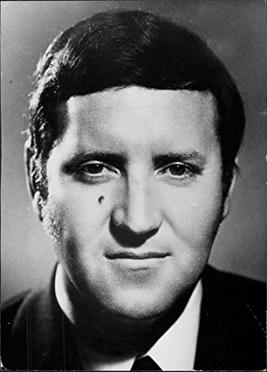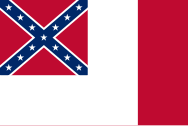
A Bantustan was a territory that the National Party administration of South Africa set aside for black inhabitants of South Africa and South West Africa, as a part of its policy of apartheid.
Separatism is the advocacy of cultural, ethnic, tribal, religious, racial, governmental, or gender separation from the larger group. As with secession, separatism conventionally refers to full political separation. Groups simply seeking greater autonomy are usually not considered separatists. Some discourse settings equate separatism with religious segregation, racial segregation, or sex segregation, while other discourse settings take the broader view that separation by choice may serve useful purposes and is not the same as government-enforced segregation. There is some academic debate about this definition, and in particular how it relates to secessionism, as has been discussed online.

Half-caste is a term used for individuals of multiracial descent. It is derived from the term caste, which comes from the Latin castus, meaning pure, and the derivative Portuguese and Spanish word casta, meaning race. Terms such as half-caste, caste, quarter-caste and mix-breed were used by colonial officials in the British Empire during their classification of indigenous populations, and in Australia used during the Australian government's pursuit of a policy of assimilation. In Latin America, the equivalent term for half-castes was Cholo and Zambo. Some people now consider the term offensive.
Whiteness studies is the study of the structures that produce white privilege, the examination of what whiteness is when analyzed as a race, a culture, and a source of systemic racism, and the exploration of other social phenomena generated by the societal compositions, perceptions and group behaviors of white people. It is an interdisciplinary arena of inquiry that has developed beginning in the United States from white trash studies and critical race studies, particularly since the late 20th century. It is focused on what proponents describe as the cultural, historical and sociological aspects of people identified as white, and the social construction of "whiteness" as an ideology tied to social status.
A dominant minority, also called elite dominance, is a minority group that has overwhelming political, economic, or cultural dominance in a country, despite representing a small fraction of the overall population. The term is most commonly used to refer to an ethnic group which is defined along racial, national, religious, cultural or tribal lines and that holds a disproportionate amount of power and wealth compared to the rest of the population.
An ethnocracy is a type of political structure in which the state apparatus is controlled by a dominant ethnic group to further its interests, power, dominance, and resources. Ethnocratic regimes in the modern era typically display a 'thin' democratic façade covering a more profound ethnic structure, in which ethnicity – and not citizenship – is the key to securing power and resources.

The values and ideals of republicanism are foundational in the constitution and history of the United States. As the United States constitution prohibits granting titles of nobility, republicanism in this context does not refer to a political movement to abolish such a social class, as it does in countries such as the UK, Australia, and the Netherlands. Instead, it refers to the core values that citizenry in a republic have, or ought to have.
Goffals or Coloured Zimbabweans are persons of mixed race, predominately those claiming both European and African descent, in Malawi, Zambia, and, particularly Zimbabwe. They are generally known as Coloureds, though the term Goffal is used by some in the Coloured community to refer to themselves, though this does not refer to the mixed-race community in nearby South Africa. The community includes many diverse constituents of Shona, Northern Ndebele, Bemba, Fengu, British, Afrikaner, Cape Coloured, Cape Malay and less commonly Portuguese, Greek, Goan, and Indian descent. Similar mixed-race communities exist throughout Southern Africa, notably the Cape Coloureds of South Africa.
In political science, policide describes the intentional destruction of an independent political or social entity. Sometimes, the related word "politicide" is used in this meaning. The term is used with some regularity within political science, generally to refer to a policy of destruction that falls short of genocide or ethnocide.
Ethnic democracy is a political system that combines a structured ethnic dominance with democratic, political and civil rights for all. Both the dominant ethnic group and the minority ethnic groups have citizenship and are able to fully participate in the political process. Ethnic democracy differs from ethnocracy in that elements of it are more purely democratic. It provides the non-core groups with more political participation, influence and improvement of status than ethnocracy supposedly does. Nor is an ethnic democracy a Herrenvolk democracy which is by definition a democracy officially limited to the core ethnic nation only.
David R. Roediger is the Foundation Distinguished Professor of American Studies and History at the University of Kansas, where he has been since the fall of 2014. Previously, he was an American Kendrick C. Babcock Professor of History at the University of Illinois at Urbana-Champaign (UIUC). His research interests include the construction of racial identity, class structures, labor studies, and the history of American radicalism. He writes from a Marxist theoretical framework.
The legal and social strictures that define White Americans, and distinguish them from persons who are not considered White by the government and society, have varied throughout the history of the United States. Race is defined as a social and political category within society based on hierarchy.

American political ideologies conventionally align with the left–right political spectrum, with most Americans identifying as conservative, liberal, or moderate. Contemporary American conservatism includes social conservatism and fiscal conservatism. The former ideology developed as a response to communism and the civil rights movement, while the latter developed as a response to the New Deal. Contemporary American liberalism includes social liberalism and progressivism, developing during the Progressive Era and the Great Depression. Besides conservatism and liberalism, the United States has a notable libertarian movement, developing during the mid-20th century as a revival of classical liberalism. Historical political movements in the United States have been shaped by ideologies as varied as republicanism, populism, separatism, fascism, socialism, monarchism, and nationalism.
Left-wing nationalism or leftist nationalism is a form of nationalism which is based upon national self-determination, popular sovereignty, and left-wing political positions such as social equality. Left-wing nationalism can also include anti-imperialism and national liberation movements. Left-wing nationalism often stands in contrast to right-wing politics and right-wing nationalism.

The Southern Rhodesia Communist Party was an illegal, underground communist party established in Southern Rhodesia which was formed in large part due to the minority settler rule, which had an immensely repressive structure. It emerged in 1941 from a split in the Rhodesia Labour Party. The party consisted of a small, and predominantly white, membership. During the parties existence it had links to other communist parties such as the Communist Party of South Africa and the Communist Party of Great Britain. The party disappeared in the late 1940s, with the exact date of its dissolution not being known. Nobel Laureate Doris Lessing author of various works including “The Grass is Singing,” is the most well known member of the Southern Rhodesian Communist Party.
Ethnic nationalism, also known as ethnonationalism, is a form of nationalism wherein the nation and nationality are defined in terms of ethnicity, with emphasis on an ethnocentric approach to various political issues related to national affirmation of a particular ethnic group.
The New Historians are a loosely defined group of Israeli historians who have challenged traditional versions of Israeli history, including Israel's role in the 1948 Palestinian expulsion and flight and Arab willingness to discuss peace. The term was coined in 1988 by Benny Morris, one of the leading New Historians. According to Ethan Bronner of The New York Times, the New Historians have sought to advance the peace process in the region.

Rowan Cronjé was a Rhodesian politician who served in the cabinet under prime ministers Ian Smith and Abel Muzorewa, and was later a Zimbabwean MP. He emigrated to South Africa in 1985 and served in the government of Bophuthatswana.
Race and Racism: A Comparative Perspective is a 1967 non-fiction book by Pierre L. van den Berghe, published by John Wiley & Sons.








